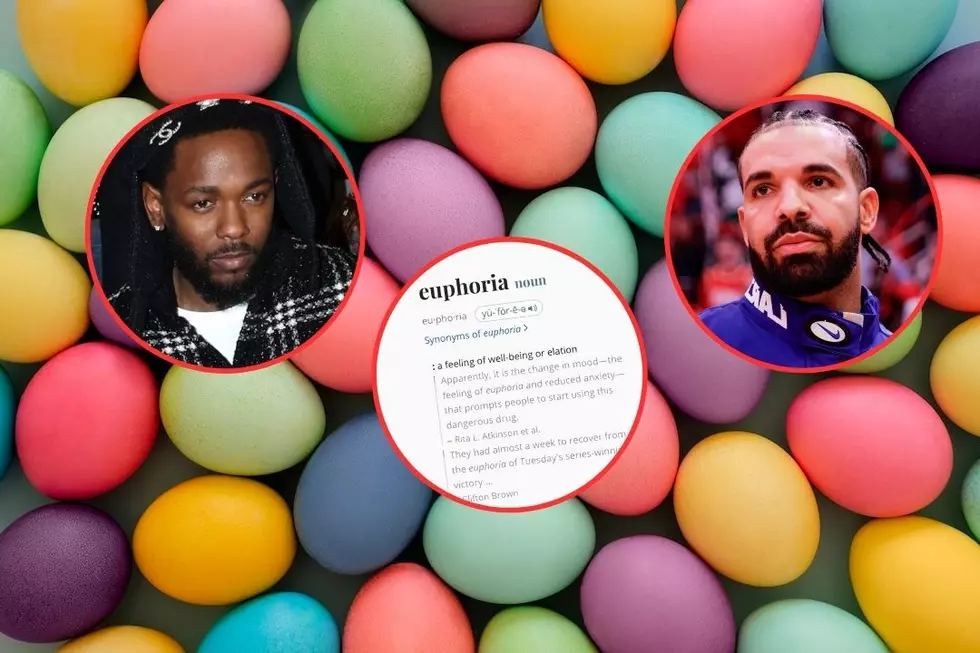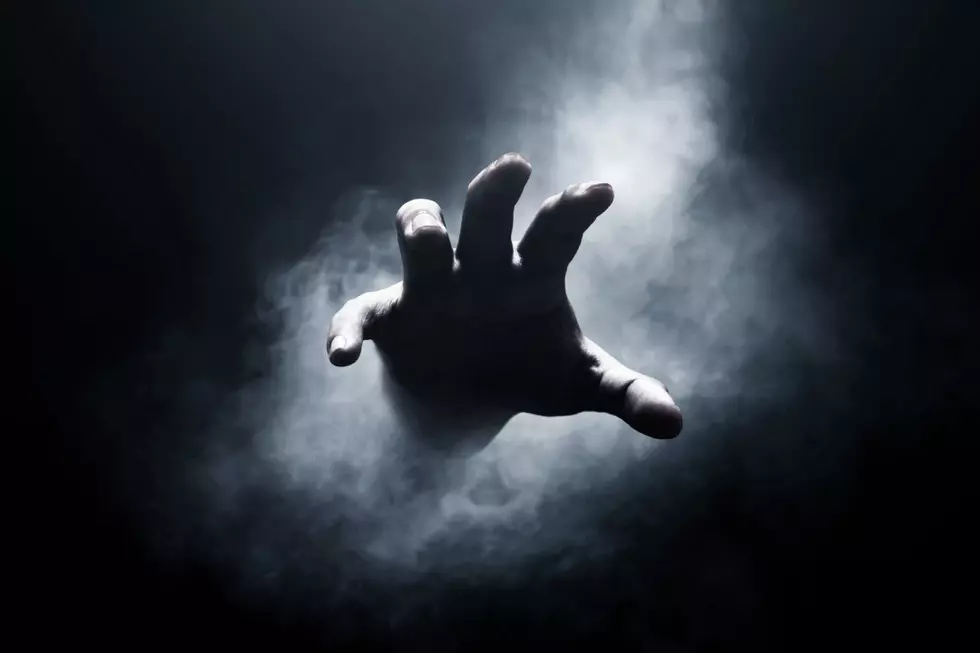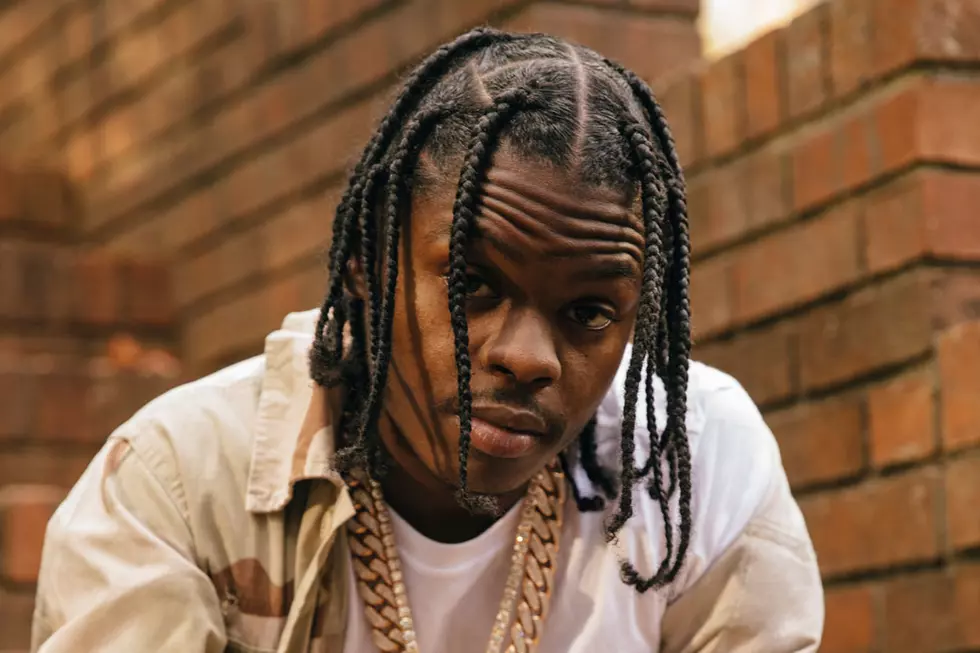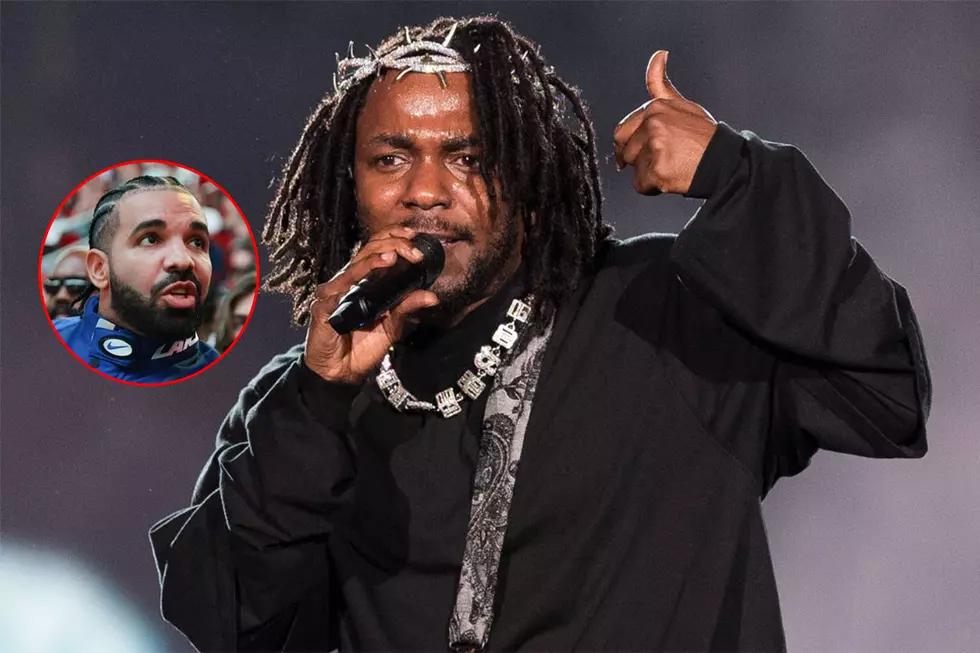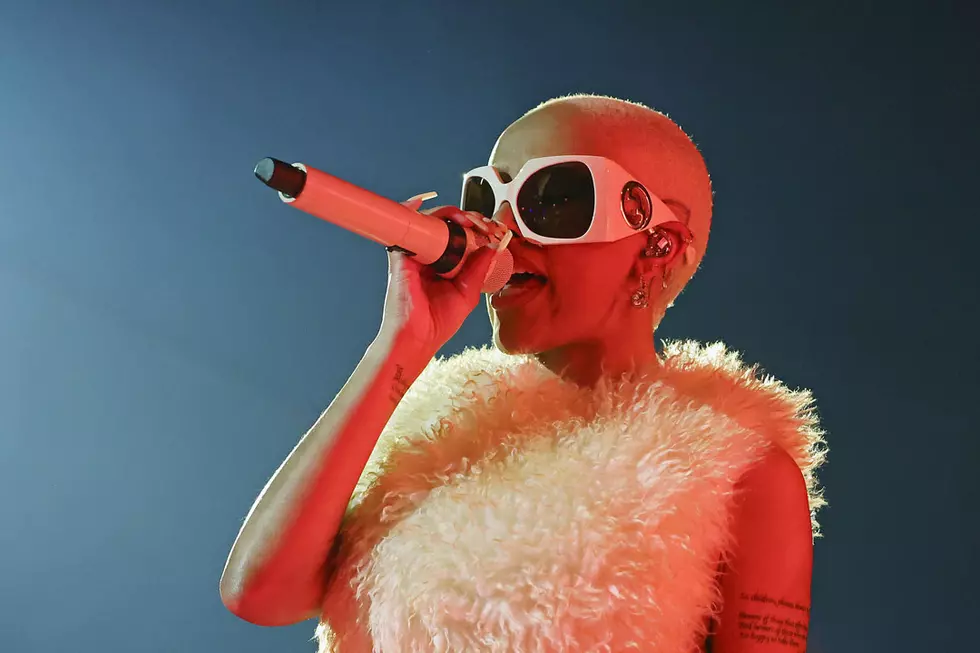
Check Out The Game’s First XXL Cover Story From 2005
Limelight
The Game had a hard-knock life in the city of Compton before deciding to take a crack at the rap game. Vowing to bring the West Coast back as a major player in the hip-hop world, he, in fact, did just that. Bow down!
Words Jon Caramanica
Editor’s Note: This story originally appeared in the April 2005 issue of XXL Magazine. It is being reprinted here to celebrate the 10th anniversary of The Game's Aftermath/G-Unit debut, The Documentary.
Sometimes you can look right at your future, stare at it long and hard, and no matter how perceptive you are, it fails to register. When Jayceon Taylor was 13, he found himself in a Compton hospital confronted with just such a situation. In the bed, with bullet wounds in his stomach, was his older brother Jevon—a hardheaded, back-talking Nutty Block Crip who’d been on the wrong side of a fight over a woman. Across the room was their father, himself a Nutty Block Crip, whose dereliction of duty on the home front had, in a sense, laid the foundation for the disarray before them.
When Jayceon was pulled out of his eighth-grade classroom that day and found his father waiting for him, he knew something had to be wrong. He didn’t see his dad often. It’d been over five years since they’d last lived under the same roof. Jayceon lived with a foster family in nearby Carson, California. Each relationship in the hospital room triangle had been fractured long before—all the Taylor boys grew up hard—but there they were, the father and his two sons, each hoping for some sort of salvation. “At that time, I’m not really a fuckup fuckup yet,” says Game, now 25, of that day in 1993. “My brother, he’s telling me, ‘I just want you to be good, ’cause Mom and Dad is saying you fuckin’ up.’ We were both in tears. He was telling me how we need to spend more time together and how he loved me and was gonna try to do right.
“You would think he was gonna come home that night,” Game remembers. “He was alive, well, talking.” So well, in fact, that everyone left the hospital, leaving them unprepared for the call, later that night, that Jevon had passed away. It hurt. Indescribably. But rather than fight back and reject the circumstances that had landed him amid such despair, he did what seemed, to a young person who was raised the way he was raised, even more logical: he relented.
“It was over,” Game says in a flat tone honed by 10 years’ distance. “I went wild. It was time for the monster boy to come out. The value of life was nothing to me for the next three years. From thirteen to sixteen, it was, I don’t care about you. Fuck you. Fuck your life. Fuck your kids. Fuck your wife. Fuck your dog.” Another older brother, Big Fase 100, had been living with grandparents in a different section of Compton and was bangin’ with the Cedar Block Piru Bloods. So even though Game attended Compton High, a heavily Crip school, tiny bits of red began to dot his outfits.
During that time, he finally moved out of the foster home where he’d spent almost a decade and returned to live with his mother. But the experiment in second-try domesticity was doomed to fail: “I used to have a Transformers lunchbox,” says Game. “And now I had a backpack with blunts in it.”
Jayceon Taylor became The Game because being Jayceon Taylor wasn’t working out quite as he would have liked. When he was shot five times in October 2001, he’d been running a Compton dope spot with his brother. He’d almost made it out: despite his gang affiliations, he’d starred on Compton High’s basketball team (alongside future NBAer Baron Davis, who also plays godfather to Game's son Harlem) and won a scholarship to Washington State University.
His college career, though, was quickly cut short by what he dismissively terms “drug allegations.” He came home before his freshman season even began, and it was back to the block. “I started hustling immediately,” he says. “Selling crack cocaine, weed, radios, rims. Whatever we could get, man, we would sell. The low points was that I wasn’t doing shit positive. The high points was that I was getting money by all means necessary, and the financial reward of hustling was pretty good.”
These days, a legitimate hustle—the rap biz—is serving him even better. “I’m pre-rich right now,” he said this past fall, while shuttling around New York in a black SUV, attending to a slew of promotional obligations. The energy in the car was palpable. Speaking about his sudden burst of fame and fortune, he sounded as if he was just discovering it for the first time, his voice a mix of wonder and arrogance. “I’m rich for no reason! I’ve accumulated a million dollars and I ain’t sold a record yet.” At the time, his debut, The Documentary, wasn’t even completed, and still, “I’m getting fifty, sixty thousand for features, I ain’t got a video out. I’m getting ten, fifteen thousand to do a sixteen on a mixtape... Shit is weird, man. They keep wanting to give me money for nothing. I be wanting to tell them, like, ‘Yo, I ain’t did shit yet.’”
Signed jointly to G-Unit/Aftermath Records, Game is the beneficiary of three decades of rap know-how, condensed into the form of mentors—Dr. Dre, 50 Cent, Eminem, Jimmy Iovine—for whom hip-hop isn’t just art, it’s business and science too. It’s all well and good to make a rap record, but The Documentary is something more: a lifeline, a fully-formed vision, a tactical assault, radio-ready and therapist couch-friendly. There are songs that advertise their commercial stratagems, and songs that sound like raw, bloody outtakes, too visceral for release. He raps about his son, his rough upbringing and his improbable success with equal aplomb. It’s as if he set himself to a series of complementary tasks and worked at them assiduously until each one was completed to perfection. (The album was originally titled N.W.A Vol. 1, until Tomika Wright, Eazy’s widow, intervened. “I thought that was real selfish,” Game says. “Nobody wasn’t even talking about N.W.A until I brought it back. She might need me one day for something.”)
Indeed, Game joining the most mechanistic, organized, goal-oriented team in the industry seems almost preordained. His own approach to hip-hop was never casual. He didn’t learn to rap battling for bragging rights in street-corner ciphers, but through intense, almost academic study of the classics of the form—Ready To Die, The Chronic, Long Live The Kane, Doggystyle, Death Certificate, All Eyez On Me, Reasonable Doubt, Wanted: Dead Or Alive, No One Can Do It Better—during the two months he was homebound, recovering from the attempt on his life.
“Nobody ever heard the beginning stages,” he says of his fleet ascent up the rap ladder, “because there weren’t any.” Within weeks of his recovery, taking a page from 50’s playbook, he began circulating mixtapes with the help of Big Fase, who was now DJing. “People knew The Game, but they ain’t know it was Jayceon Taylor. I’m from Compton. I’m not surrounded by rappers, I’m surrounded by gang members. It’s like, we got Snoop and we been content with that.”
In February 2002, just four months after being shot, he met Bay Area stalwart JT the Bigga Figga at the Los Angeles Hip-Hop Summit. A week later, he was up in the Fillmore section of San Francisco, recording his first songs. While he was there, one of his mixtapes landed in the hands of Dr. Dre. Says Game, “The way I heard it is Dre heard one song, cut the shit off and was like, ‘Go get him.’” Dre’s people got in touch with Game’s right-hand man, D-Mac, who called right away with the good news. But Game, thinking it was a joke, hung up the phone. Four days later, when he returned to L.A., D-Mac sat him down: “You gonna be the next dude. Serious.” Hours later, The Game was in the studio for an audience with the Doctor himself. He remembers, “I walked in, dawg, I saw Dre and I damn near shitted on myself. I only know this dude from TV and listening to the radio... Still to this day, I be working in the studio with Dre, he turn his head and I be looking at him like, Damn, that’s muthafuckin’ Dr. Dre! I know when I walk in the store and buy an album, that’s one. How do you get 999,999 other people to do the same thing? Dr. Dre knows, so I just pretty much follow his lead.”
That’s an awful lot of trust coming from someone conditioned since childhood not to rely on anyone but himself. The product of two Crip parents (his mother claimed the Hoover set), Game was raised amidst the torment typical of life in gangland. He was bright, but also skittish; scared of the dark as a young child, he would piss in the hallway space heater rather than brave the walk to the bathroom. When he was six, the habit had a grim outcome: a fire that burned down his family’s home.
The impact of that disaster, though, seemed like nothing a year later, when Game’s older sister accused their father of molesting her. The Taylor family, already way short of a model of domestic bliss, was torn apart. “That was the most devastating shit, besides me getting shot, in my life,” Game says now. “At that time, a seven-year-old kid getting told, ‘Don’t worry about your mom and dad, these people will take care of you...’ Huh?”
Though his mother was allowed to visit every other week, his father all but disappeared from his life, for reasons legal and emotional. “He never did a day in jail,” Game says of his father, with whom he hasn’t spoken in three years. “My sister, to this day, has not changed her story from when she was eleven. What am I gonna say to a girl that was raped by her own father? I would never want the details of that. I just always consoled her and tried to be her shoulder to lean on.” There were ten kids in his foster home. Being the smartest, young Game was made to help everyone else with their homework. At school, he was teased—“Your brother’s Mexican! Your brother’s Chinese!”
Is it any wonder, then, that The Game has become far and away the most lyrically pugnacious rapper since, well, 50 Cent? Everything about the early phase of his career suggests a hungry, vigorous MC who, if he didn’t begin to watch his words more closely, might not make it to see the release of his first album. In a few short months last summer and fall, Game went after a host of rappers: Joe Budden and Memphis Bleek, and Yukmouth, who’d aligned himself with perennial G-Unit needlers Bang ’Em Smurf and Domination. Rapping over nine minutes of Dre’s classic “Deep Cover” instrumental, Game came with the best diss track since “The Takeover” met “Ether.” He called it “200 Bars And Runnin’” (another nod to N.W.A) and brought a little something for everyone. Budden: “He got whipped on wax / So he snitched just to get me back.” Bleek: “I ain’t say you won’t see Bleek in Marcy / I said my man told me he don’t see Bleek in Marcy.” Smurf: “Smurfette running round New York like he the man / But he peed in his pants when he saw us at Summer Jam.” Game even poked at his own labelmate, fellow up-and-comer Stat Quo, boasting, “I’m the ’Math / Stat Quo know.”
Not satisfied with his lyrical body count, Game recently took swipes at Guerilla Black (though they’re both from Compton and share a manager) during a radio interview with Hot 97's Angie Martinez. And he has less than kind words for JT the Bigga Figga, who last year released Untold Story (Fastlife), a collection of recordings Game made up in the Bay Area. “People know that’s not my album,” Game says. “I don’t even have to say it.” He considered blocking the release with legal action, but opted instead to break bread: “Give us our seventy-five percent, and you do what you want with your twenty-five percent.” Today, Game takes a page on his Sidekick, laughs out loud, and displays an email message that includes a number in the mid-five figures. “That’s just the first check from them [JT and Fastlife]. A lot of those dudes could have been here with me, capitalizing off of my situation, but they wanted theirs now, and they knocked themselves off the ladder. I don’t even talk to them. I got people that do talking for me.”
Taking a cue from his mentors, Game has been quick to consolidate his forces. Many of his fellow Cedar Block Pirus are now in his employ—either at his label, Black Wall Street, or in one of the nebulous positions that tend to exist solely for hangers-on of the newly famous. Game is loyal not only to his people but also to his neighborhood, and to the idea that, even in this era of hip-hop’s global influence, hood still matters. “Ask [the label people] how much they begged me to move,” he says. “To buy a condo in Beverly Hills. I will not leave, dawg. I still live in Compton, except now I own the block”—three houses, one of which serves as a business office/recording studio, and a liquor store. Some of the money behind the real estate entrepreneurship is old, some of it is new, but, “Everything is legit now. Police’ll come over there and see my homies with guns on they belt, but they got ‘Security’ on this shoulder and ‘Security’ on that shoulder. It might be a 2Pac picture shirt, but it’s ‘Security,’ so it’s whatever.”
Really, everything you need to know about The Game is written on his flesh. Tattoos are a tribute to memory, a permanent reminder of the impermanence of things. So when something goes wrong—or, at times, right—he submits himself to the needle. Judging by the ink that decorates the better part of his upper body, there’s been ample need for remembrance over the years.
Beginning with his hand, which sports his last name—“We had no reunions, no family albums, so I feel like my last name is a curse”—the left arm is a testament to chaos. Flames lead to a clown face aside a Glock, which gives way to Jesus putting the Devil on the cross, and in turn to a man with two revolvers and a red rag. Off his shoulder and down to his chest is a red bandana, which stops short, with a drop of blood, at the spot where, during the shooting incident in 2001, he took a bullet just inches from his heart.
That’s also where things begin to change. The right side of his chest bears the distinctive N.W.A logo, and his right arm, while it resembles a graveyard, is more a testament to those who’ve given him his new lease on life. His right hand reads "Chuck," after a friend who was killed in 1999. And up the forearm, there are portraits of 2Pac, Biggie, Jam Master Jay, Big L, Mausberg, Big Pun and, largest of all, Eazy-E. Right above the mural of hip-hop martyrs is a rendition of his own team—“These are really my homies,” he says—dwarfed by the word “Billboard,” the rap handle of his best friend who was murdered last summer in Compton. “I’m still trying to get over that,” he says plainly.
Then there’s the tear, a hollow outline just below the far corner of his left eye. “There’s a lot that goes into that one, man.” He sighs. “I can’t really explain that one. I don’t physically cry, so...” and then he trails off, wary of piercing the veil, either the one of emotion, or the one of secrecy.
Clearly, The Game has seen too much. But sometimes, at the right moments, he sparkles with a wide-eyed naivete. The world, he’s beginning to see, is much bigger than he was ever allowed to realize. The rules and codes that once mattered still do, but they’re slowly being complemented by new understanding. After a pause, he admits to crying when his son, Harlem, was born in 2003. Considering his words, he says, “Yes, I did. I’m thinking back, and my conscience said to me, ‘Muthafucka, you better tell the truth!’” And then he laughs at himself, relieved, perhaps, to crack his shell ever so slightly.
Letting his guard down isn’t an option he has often been afforded. November’s Vibe Awards was supposed to be a moment of coronation for the crew—he was making his televised performance debut alongside 50 Cent, and Dr. Dre was set to receive a Lifetime Achievement Award. Right after Game and 50 performed “How We Do,” he retreated to his trailer for a change of clothes. Suddenly, after hearing a commotion outside, he emerged to see “muthafuckas running everywhere. It’s a lot of muthafuckin’ faggots in the rap game, straight Carl Lewis shit.” An attacker, Jimmy Johnson—rumored to have been hired by Suge Knight—had punched Dr. Dre at his table just before he was set to receive his award. Dre’s crew swarmed Johnson, who ended up in the hospital with two stab wounds. Though internet rumors have placed Game near the center of the scuffle, it was Young Buck who was charged with attempted murder. (Johnson was charged with assault.)
“I think that whoever did that waited ’til me and 50 got out of our seats,” says Game. “And I think the dude that did that got what he deserved.”
Perhaps it’s well enough that Game escaped the skirmish scot-free. The man born Jayceon Taylor has plenty of scars already. Still, he stands unbowed.
“I don’t regret anything in my life,” he says. “Because all I was trying to do was better myself. I did that using the survival tools given to me by the people that were supposed to be my role models—so where did I go wrong? I straightened [my life] out. Now I’m a father, and my son won’t have to look for ways to survive. I will provide for him until he can for himself.”
Related: The Game Announces The Documentary 10-Year Anniversary Concert
13 Of The Game’s Random Relationship Quotes On Instagram
The Game Receives Humanitarian Of The Year Award
Review: The Game Sounds Hungrier Than Ever On His Album Blood Moon: Year Of The Wolf
The Game’s ‘The Documentary 2′ Will Have Beats From Dr. Dre, Scott Storch And Just Blaze
More From XXL
